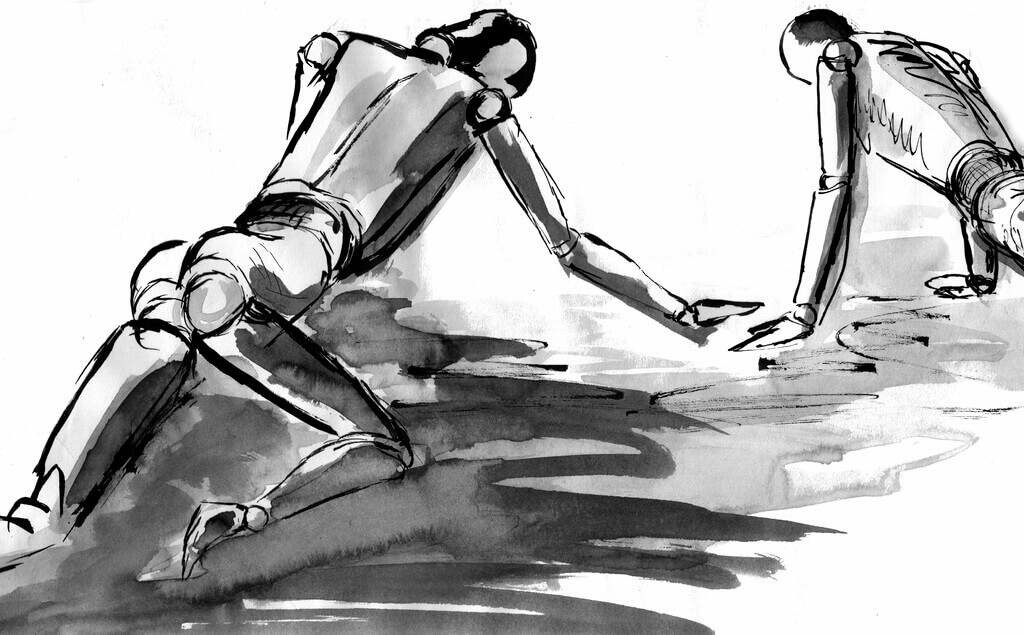Biodecoding offers an intriguing perspective on how colds can be the physical manifestation of our internal and emotional battles. These symptoms, from congestion to fever, are not mere coincidences but signals from our bodies regarding unresolved conflicts.
Connection Between Colds, Biodecoding, and Emotional Conflicts
Colds are interpreted as difficulty in social adaptation, sometimes evidencing our internal struggle to establish meaningful connections with certain individuals. It has been observed that colds tend to manifest more frequently in situations requiring direct and prolonged interaction with others, such as during holiday periods when family dynamics are intensified due to continuous cohabitation.
This recurrence suggests that colds may be a physical manifestation of underlying emotional conflicts related to socialization and adaptation to the social environment.
Behind a common cold, there can be a specific emotional conflict, often described as a “territorial threat conflict.”
This type of conflict is characterized by small, frequent, and repetitive disputes, either in the family or work environment, revolving around the notion of “territory,” understood in both the literal and metaphorical sense.
Resentments and Cold Symptoms
Symbolic Interpretations
- Nasal congestion: symbolizes the desire to escape an unpleasant situation or the rejection of a specific environment, expressed in thoughts like “I want to get out of this scenario” or “This place has an unbearable smell.”
- Irritated nose: “I’m fed up with this situation,” could indicate emotional saturation.
- Sore throat: difficulty in “swallowing” or accepting a conflictive situation.
- Cough with neck pain: remorse for having said something inappropriate or the desire to have remained silent.
- Nasal drip and sneezing: rejection towards changes or perceived threatening situations in the environment.
- Chills: feelings of vulnerability or loneliness, like feeling unprotected against adversities.
- Earache: “What I hear pains me,” could indicate a refusal to accept criticisms or uncomfortable truths.
- Watery eyes: sadness or rejection towards what is seen in the environment.
- Fever: a sign of frustration or desire for attention, internally manifesting as “I’m being ignored.”
Emotional Interpretation of Fever in Biodecoding
Fever is seen as a physical reflection of an internal buildup of anger and frustration.
When there is a lack of “essential warmth” in our lives, symbolized by the absence of affection, attention, and emotional care, fever acts as a compensatory mechanism, an attempt by the body to “self-generate” that missing warmth and emotional connection through an increase in body temperature.
Cold as an Expression of Sadness and Emotional Overload
A cold is interpreted as a relief valve to release accumulated sadness, unprocessed disappointments, or emotions damaged by situations of helplessness and loneliness.
When we find ourselves in states of confusion, anxiety, or profound dissatisfaction with our reality, the body may manifest a cold as a form of expression of our desire for distance and reconnection with our inner self.
The phrase “I want to get away from the stench to get back in touch with myself” encapsulates this longing for introspection and personal healing, distancing oneself from toxic situations or cold relationships.
Furthermore, it is proposed that beliefs and expectations about health have a direct impact on our predisposition to become ill.
Concepts such as “catching a cold from a chill,” “the contagion of colds,” or the idea of getting sick a specific number of times per season, are examples of how our beliefs can materialize in our physical reality.
This phenomenon reflects the power of the mind over the body, suggesting that our convictions can significantly influence our susceptibility to diseases.
The Emotional Functionality of the Cold
The cold can function as an unconscious strategy to evade conflictive or unpleasant situations.
Symptoms such as nasal congestion, watery eyes, or cough provide a socially acceptable excuse to withdraw from stressful environments, allowing us space for reflection and self-care. This defense mechanism highlights the need to confront and process our emotions to prevent them from somatizing in the form of illnesses.
Managing Conflicting Emotions and Preventing Symptoms
The manifestation of symptoms such as fever or the common cold is seen as an indication that there are conflicting emotions, like anger or sadness, that we are not managing adequately.
The key to preventing and managing these symptoms lies in the recognition and healthy expression of these emotions. Below, some strategies are presented to effectively manage these situations:
Becoming Aware of Anger
The first step is to recognize and accept that anger is present. It’s important to identify the situations, comments, or behaviors that trigger this emotion in us. This recognition is fundamental to being able to address the conflict consciously and prevent negative emotions from accumulating and somatizing in the form of physical symptoms.
Managing Expectations
One of the most common sources of frustration and anger is having unrealistic expectations about how people or situations should be.
Adjusting our expectations to reality and accepting that we cannot control the behavior of others can significantly reduce stress and frustration levels.
Recognizing that expectations are preconceptions we have about how things should be allows us to let go and live more in the present, reducing the likelihood of emotional confrontations.
Healthy Expression of Emotions
If something or someone bothers us, it is vital to express our feelings constructively. Open and honest communication is a powerful tool for resolving conflicts and preventing misunderstandings. By expressing our feelings and needs respectfully, we not only release internal tension but also open the door to mutual understanding and closeness.
Accepting Circumstances
In events like Christmas dinners or other social gatherings, where dynamics can be especially intense, accepting circumstances as they are playing a crucial role.
Entering these situations without specific expectations about others’ behavior and being prepared to accept and manage whatever comes with calmness and openness can make a significant difference in how we experience these events and in our emotional and physical health.
Facing Internal Conflicts
It is crucial to address the internal conflicts that may be at the root of our emotional reactions. This may involve introspective work and, in some cases, the support of a professional who can guide us through the process of recognizing and transforming these conflicting emotions into understanding and personal growth.
Adopting these strategies will not only help us manage anger and other conflicting emotions more effectively but will also contribute to our overall health, preventing the manifestation of physical symptoms associated with emotional stress.




